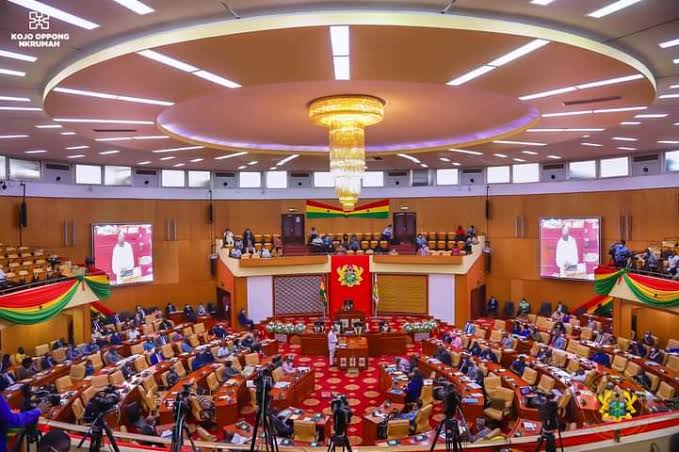By: Kenneth Appiah Bani
The Center for Africa Development and Progress (CADeP) has urged Ghana’s Parliament to put a halt to the passage of new laws and instead prioritize the strict enforcement of existing legislation.
In a strongly worded statement, the think tank warned that Ghana is “drowning in statutes” while accountability remains elusive. According to CADeP, the country’s persistent cycle of waste, corruption, and impunity is not due to a shortage of laws, but rather a chronic failure to implement and enforce them.
Citing the Auditor-General’s 2022 Report, CADeP highlighted nearly GH₵17 billion in financial irregularities, including procurement breaches and unaccounted-for expenditures. Yet, the recovery of these sums has been negligible, with many culprits escaping meaningful sanctions.
The group noted that Parliament’s Public Accounts Committee (PAC) routinely confronts Ministries, Departments, and Agencies (MDAs) over recurring financial breaches—such as failure to produce receipts for public spending—yet little deterrence has been achieved.
Similarly, accountability institutions such as the Office of the Special Prosecutor (OSP) and the Economic and Organized Crime Office (EOCO) have struggled to secure significant convictions, even in high-profile cases like the Cecilia Dapaah cash scandal.
The Judiciary also came under criticism, with CADeP pointing to delays in major cases, including the protracted trial of MenzGold CEO Nana Appiah Mensah (NAM 1), as emblematic of a sluggish justice system that undermines public trust.
“Passing laws while ignoring enforcement is like patching a leaking roof by adding another floor to the house,” said Johanes Koku Nyagblordzro, Executive Chairman of CADeP.
“Ghanaians are frustrated. They see reports piling up, culprits named, yet no meaningful punishment or recovery of stolen funds. We cannot legislate our way out of corruption; we must enforce our way out,” he stressed.
CADeP’s Recommendations
The think tank called for a national shift from legislative expansion to enforcement, outlining three key measures:
A Parliamentary Pause – A moratorium on new laws to allow Parliament to focus on oversight and compliance.
Institutional Accountability – Ensuring that the Auditor-General, OSP, EOCO, CHRAJ, and the Judiciary translate reports into sanctions, prosecutions, and recoveries.
Civil Society Vigilance – Encouraging the media, advocacy groups, and citizens to press for enforcement rather than endless lawmaking.
CADeP cautioned that if Ghana continues to churn out laws without enforcing them, the cycle of waste and corruption will worsen, public funds meant for development will continue to vanish, and confidence in democratic governance will erode.







